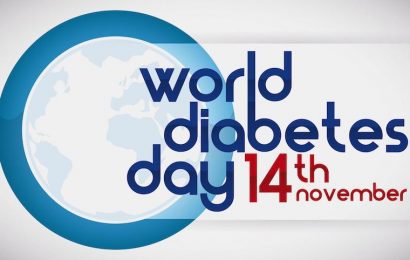In recent years, coffee has been widely touted for its presumed health benefits — including improved insulin sensitivity, meaning that the body is more responsive to both naturally produced and any injected insulin. But as we noted a few years ago here at Diabetes Flashpoints, many studies on the beverage have simply compared active coffee drinkers with people who don’t drink coffee. The problem with this approach is that certain factors — such as a generally healthy lifestyle or having more money — may influence both a person’s health and how much coffee he drinks.
Furthermore, as we noted in that post, not all evidence points to coffee having a positive effect on insulin sensitivity — especially when obesity and other health problems enter the picture. So a recent study from India may be reassuring to people with diabetes who drink coffee.
Published last month in the International Journal of Pharmacy and Pharmaceutical Sciences, the study looked at 200 people without diabetes as well as 90 people with Type 2 diabetes who took oral diabetes drugs. A large share of participants in both groups — 143 in the group without diabetes, 48 in the group with diabetes — were already regular coffee drinkers. The coffee drinkers were instructed to drink 3 to 4 cups of coffee each day, and all participants were followed for 16 years.
At the end of the study period, the researchers found that fasting blood glucose levels were lower in coffee drinkers compared with nondrinkers, within both groups. But as noted in a Medical Daily article on the study, the effect was more pronounced in participants with diabetes. While coffee-drinking participants without diabetes had an average fasting glucose level of 76 mg/dl compared with 79 mg/dl for nondrinkers, coffee-drinking participants with diabetes had an average glucose level of 105 mg/dl compared with 128 mg/dl for nondrinkers.
Coffee drinkers in both groups also had lower blood levels of uric acid, which is associated with insulin resistance as well as cardiovascular disease and kidney disease in people with diabetes. The researchers speculated that the beneficial effects of coffee were due at least in part to chlorogenic acid, a widely studied chemical found naturally in coffee.
Since it observed people who already drank coffee, this study can’t rule out external factors playing a role in some (or even all) of the benefits seen in participants who drank coffee. But given that coffee drinkers with diabetes had comparatively better outcomes than those without diabetes, it seems unlikely that better general health or healthier lifestyle choices could explain the benefits seen in coffee drinkers. Still, only a randomized controlled trial could show definitively that coffee has health benefits over a long period of time — and telling people who don’t drink coffee to start drinking it every day might not be sustainable.
What’s your take on this study — were you already familiar with the health benefits for which coffee has been touted? Do health concerns play any role in your choice to drink, or not to drink, coffee? If you’ve changed your coffee-drinking habits at all, did you notice any difference in your blood glucose control? Do you think the calming ritual of preparing or drinking coffee might have anything to do with its supposed health benefits? Leave a comment below!





